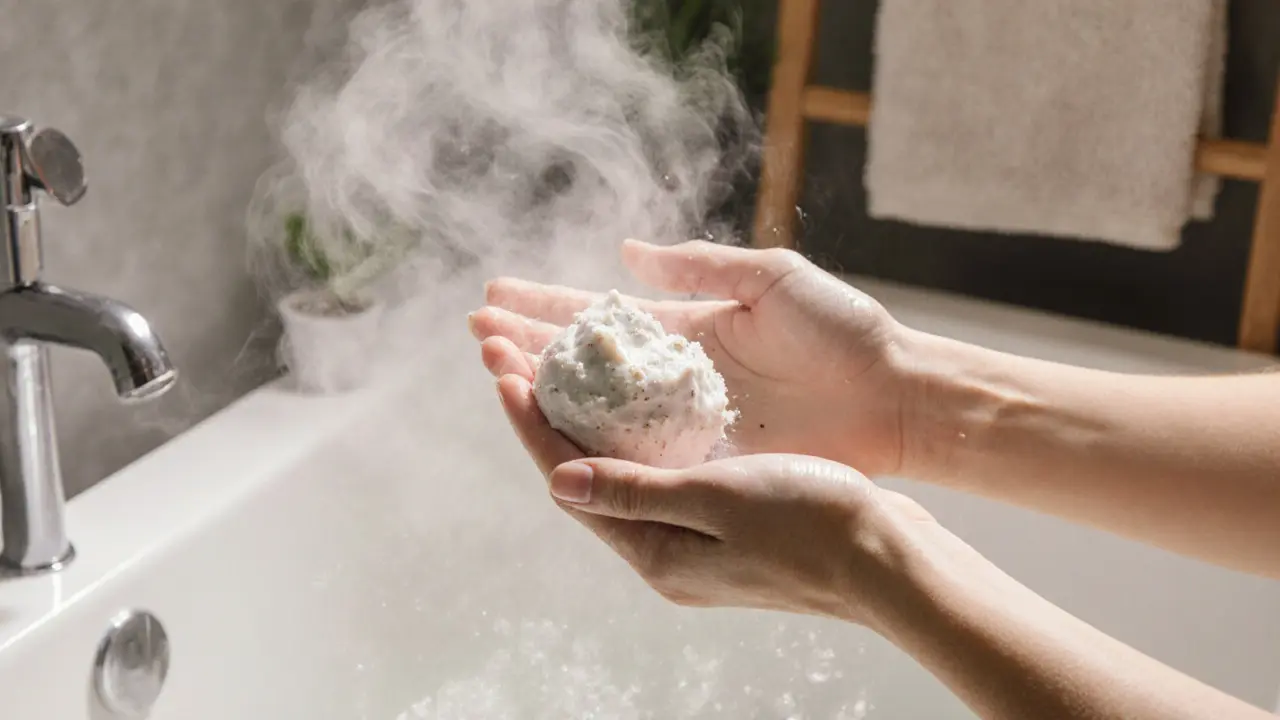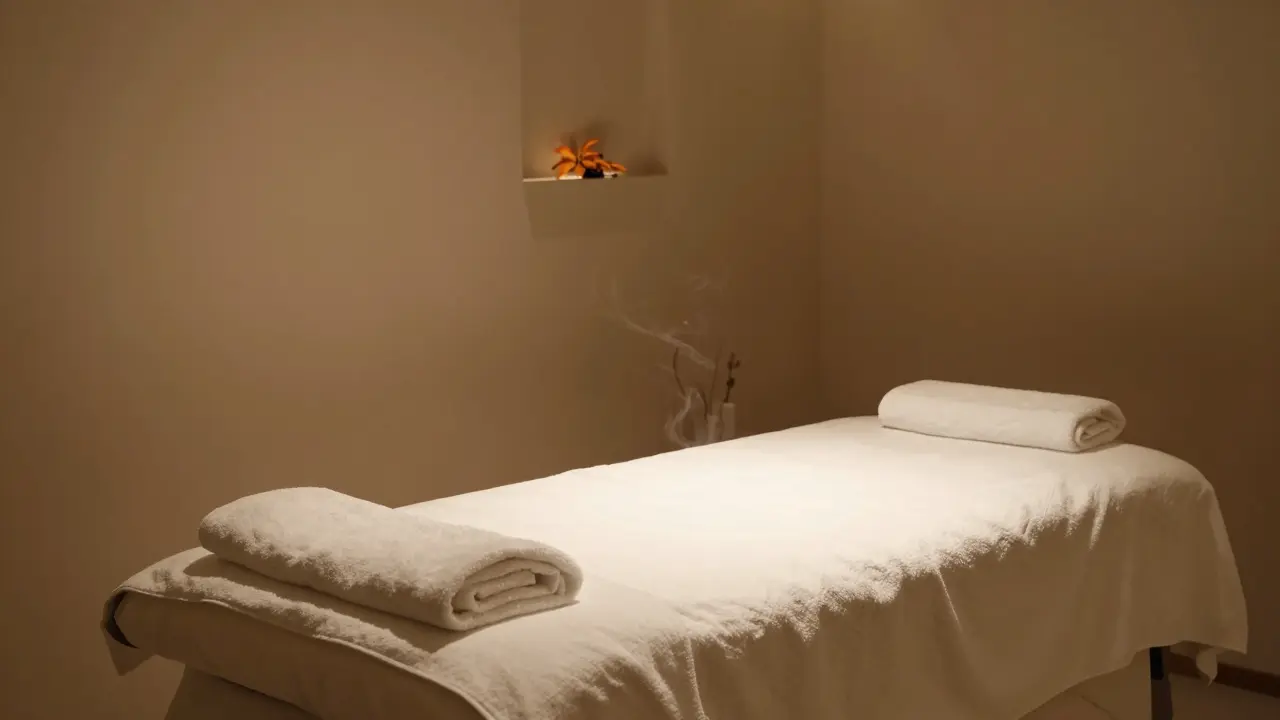Wondering how often you should use a sugar scrub? The answer hinges on your skin type, the scrub’s ingredients, and what you want out of the routine. Below, we break down everything you need to decide the perfect schedule, avoid common pitfalls, and get the smooth glow you’re after.
Understanding the Basics of Sugar Scrub
Origins and History
Sugar scrub dates back to ancient civilizations that used granulated sugar mixed with oils to soften rough skin. In the early 20th century, French spa therapists refined the formula, adding fragrant essential oils and moisturizing butter. Today it’s a staple in both luxury salons and home bathrooms.
Core Principles or Components
At its core, a sugar scrub combines three elements:
- Exfoliating particles - usually fine sugar crystals that dissolve on contact.
- Moisturizing base - oils or butters (shea, coconut, almond) that keep skin hydrated.
- Optional actives - essential oils, vitaminE, or mild acids for added benefits.
Because sugar dissolves, it’s gentler than salt, making it a good match for sensitive areas like the thighs or underarms.
How It Differs from Related Practices
Below is a quick side‑by‑side comparison of sugar scrub versus its closest relatives.
| Practice | Texture | Typical Frequency | Best For |
|---|---|---|---|
| Sugar Scrub | Fine, dissolvable crystals | 1-3 times per week | Sensitive to normal skin, quick rinse |
| Salt Scrub | Coarser, abrasive grains | 1 time per week | Sturdy skin, body‑builder post‑workout |
| Chemical Exfoliant (AHA/BHA) | Liquid or gel | 2-4 times per week | Acne‑prone or uneven texture |
Who Can Benefit from Sugar Scrub?
Anyone looking for a quick, at‑home way to slough off dead skin cells can benefit. It’s especially useful for:
- People with normal to slightly dry skin who want extra moisture.
- Those who enjoy a spa‑like ritual without the price tag.
- Travelers needing a compact, mess‑free exfoliant.
If you have severe eczema, rosacea, or open wounds, check with a dermatologist first.
Benefits of Sugar Scrub for Your Body
Gentle Exfoliation
Because sugar crystals dissolve, they lift away dead skin without micro‑tears. This reduces the risk of inflammation and leaves a smoother surface for moisturizers to sink in.
Enhanced Moisture Retention
The oil‑rich base (often shea butter or coconut oil) seals in hydration right after the scrub, combating the dryness that can follow harsher scrubs.
Improved Circulation
Massaging the scrub in circular motions stimulates blood flow, which can give a temporary “glow” and aid in toxin removal.
Versatile Aromatherapy
Adding a few drops of lavender or citrus essential oil turns a simple cleanse into a sensory treat, helping reduce stress after a long day.
Here’s a concise table summarizing the main perks.
| Benefit | Description | Impact |
|---|---|---|
| Gentle Exfoliation | Removes dead skin without abrasion | Smoother texture, less irritation |
| Moisture Lock | Oil base seals hydration | Soft, supple skin |
| Circulation Boost | Massage stimulates blood flow | Temporary glow, detox support |
| Aromatherapy | Essential oils add scent benefits | Stress relief, mood lift |
What to Expect When Using a Sugar Scrub
Setting or Context
Most people enjoy a sugar scrub in the shower or bathtub. Warm water opens pores, making the crystals more effective. If you’re at a spa, expect a soft, plush towel and a quiet, aromatic space.
Key Processes or Steps
- Wet skin with warm water.
- Apply a palm‑sized amount of scrub.
- Massage in gentle, circular motions for 30‑60 seconds.
- Rinse thoroughly; the sugar should dissolve completely.
- Pat dry and follow with a moisturizer.
That’s it - no complicated tools needed.
Customization Options
You can tweak the recipe:
- Swap coconut oil for jojoba if you’re prone to breakouts.
- Add a teaspoon of coffee grounds for an extra caffeine kick.
- Use a scented candle to set a calming mood.
Communication and Preparation
If you’re at a professional spa, let the therapist know about any allergies (e.g., nut oils) or skin conditions. At home, read product labels and do a 24‑hour patch test.

How to Practice Sugar Scrubbing Effectively
Setting Up for Success
Create a mini‑spa vibe: a clean towel, soft lighting, and a waterproof mat. Keep your scrub in a sealed container to preserve the oil’s freshness.
Choosing the Right Tools/Resources
Look for scrubs that list natural sugar (not corn syrup) and contain at least 10% moisturizing oil. Avoid products with synthetic fragrances if you have sensitive skin.
Step‑by‑Step Guide
- Sugar scrub is a blend of fine sugar crystals and a moisturizing carrier oil, designed to gently exfoliate the skin while providing hydration.
- Warm your shower to a comfortable temperature; no need for scorching hot water.
- Scoop a tablespoon of the scrub into your palm.
- Apply to wet skin, massaging upward and outward. Focus on elbows, knees, and shoulders.
- Rinse fully; any remaining granules will dissolve.
- Finish with a light moisturizer, preferably one containing ceramides.
Repeat according to your skin’s tolerance - see the frequency guide below.
Tips for Beginners or Couples
If it’s your first time, start with once a week and monitor how your skin feels 24hours later. For couples, use two separate containers to avoid cross‑contamination, and turn the session into a relaxing “spa night.”
Safety and Ethical Considerations
Choosing Qualified Practitioners/Resources
When booking a spa, check that therapists are licensed estheticians and that the venue follows hygiene standards (clean towels, disposable spatulas for product handling).
Safety Practices
| Practice | Purpose | Example |
|---|---|---|
| Patch test | Identify allergic reaction | Apply a pea‑size amount on inner forearm, wait 24h |
| Use gentle pressure | Prevent micro‑tears | Press lightly, let crystals do the work |
| Avoid broken skin | Reduce infection risk | Skip scrub on shaving cuts or eczema flare‑ups |
Setting Boundaries
Communicate any discomfort immediately, especially in a professional setting. If a therapist’s pressure feels too harsh, ask them to soften the motion.
Contraindications or Risks
People with the following should either skip sugar scrubs or get medical guidance:
- Active dermatitis or psoriasis lesions.
- Recent chemical peels or laser treatments (within 2weeks).
- Extremely sensitive skin that reacts to even light friction.
Enhancing Your Experience with Sugar Scrubbing
Adding Complementary Practices
Pair your scrub with a short steam session or a quick facial mask. The steam opens pores, while the mask delivers nutrients, maximizing the post‑scrub glow.
Collaborative or Solo Engagement
Solo sessions let you focus on personal comfort. With a partner, you can give each other back‑rubs, turning the routine into quality time.
Using Tools or Props
A soft silicone brush can help spread the scrub evenly, especially on hard‑to‑reach areas like the lower back.
Regular Engagement for Benefits
Most dermatologists recommend 1-3 times per week for normal skin, and once a week for sensitive skin. Consistency prevents buildup of dead cells and keeps the skin barrier healthy.

Finding Resources or Experts for Sugar Scrubbing
Researching Qualified Experts/Resources
Search for spas that list certified estheticians and read client reviews about hygiene. Online, look for brands that disclose ingredient sources and use recyclable packaging.
Online Guides and Communities
Forums like Reddit’s r/SkincareAddiction and YouTube channels dedicated to natural beauty often share DIY recipes and real‑world feedback.
Legal or Cultural Considerations
In the UAE, spa services must be licensed by the Department of Tourism and Commerce. Verify that any commercial spa you visit displays a valid license.
Resources for Continued Learning
- ‘The Complete Guide to Natural Body Care’ - a comprehensive ebook.
- Online courses on platforms like Skillshare covering DIY scrub formulation.
- Webinars hosted by dermatology societies discussing safe exfoliation practices.
FAQ: Common Questions About Sugar Scrub
How often should I use a sugar scrub if I have normal skin?
For normal skin, 2-3 times a week is generally safe. This frequency removes dead skin without stripping the barrier, while still allowing the moisturizing oils to replenish moisture.
Can I use a sugar scrub on my face?
It’s possible, but choose a formula specifically labeled for facial use - it will have finer crystals and lighter oils. Even then, limit to once a week to avoid irritation.
What’s the difference between a sugar scrub and a salt scrub?
Sugar dissolves quickly, offering a gentler exfoliation suitable for most body areas. Salt is coarser, better for calloused spots like feet, but can be too abrasive for sensitive skin.
Do I need to moisturize after using a sugar scrub?
Absolutely. The scrub removes the top layer of dead cells, leaving a receptive surface. A moisturizer with ceramides or natural butter locks in the hydration the scrub’s oils begin.
Is a sugar scrub safe for pregnant women?
Generally yes, as long as the ingredients are pregnancy‑safe (no retinol or strong essential oils). Still, keep the frequency low-once a week is a sensible rule.
Conclusion: Why Sugar Scrubbing Is Worth Exploring
A Path to Smoother, Happier Skin
When done the right way, a sugar scrub offers a simple, affordable spa experience that leaves your skin softer, more hydrated, and ready to absorb the next round of skincare.
Try It Mindfully
Start with a modest schedule, listen to how your skin reacts, and adjust. If you’re unsure, a quick chat with a dermatologist can set you on the right track.
Share Your Journey
Have you found a favorite sugar‑scrub blend? Drop a comment below or follow our blog for more skin‑care tips. Your experience might help someone else discover their glow.
Some links may be affiliate links, but all recommendations are based on research and quality.




Neha Sharma
October 16, 2025 AT 14:26Yo, I’ve been using a sugar scrub about twice a week and my skin feels like silk, but don’t go overboard or you’ll end up flaky – keep it chill and listen to how your skin reacts.
Nancy Espinoza
October 28, 2025 AT 06:00Imagine the ritual of sugar crystals dancing on warm skin like tiny philosophers questioning the very nature of smoothness it feels almost poetic yet practical we all crave that glow without the drama of harsh chemicals
Kate Cole
November 8, 2025 AT 22:33When considering exfoliation, the balance between removal and preservation is paramount. Sugar, by virtue of its soluble crystals, offers a unique medium that dissolves before it can cause micro-tears. This dissolving property reduces the risk of barrier disruption, a fact often overlooked in mainstream skincare rhetoric. Moreover, the inclusion of oils such as shea or jojoba provides an immediate occlusive layer that traps moisture. From a biochemical standpoint, the gentle friction stimulates keratinocyte turnover without triggering excessive inflammation. Studies have shown that moderate mechanical stimulation can increase collagen deposition modestly over time. However, the frequency of application must align with individual skin resilience; overuse negates the benefits. For normal to slightly dry skin, two to three sessions per week typically suffice to maintain a smooth surface. Sensitive skin types should err on the side of caution, limiting exposure to once weekly or even less. It is also prudent to select formulations that exclude harsh synthetic fragrances, which can act as irritants. Patch testing on a small area of the forearm remains the gold standard before full-body application. After rinsing, the skin's pH is momentarily elevated, creating an optimal window for serums rich in ceramides. Thus, following the scrub with a barrier-repair moisturizer compounds the exfoliation benefits. In a professional setting, therapists should communicate pressure levels clearly to avoid unintentional micro-damage. Ultimately, the disciplined integration of a sugar scrub into a broader skincare regimen can enhance texture while preserving health.
Angie Torres
November 20, 2025 AT 15:06Do it once a week.
Sharon Chui
December 2, 2025 AT 07:40I’ve always felt there’s a hidden agenda behind those glossy ads, like they’re trying to sell us a dream while the chemicals lurk beneath; still, the gentle vibe of sugar feels like an underground movement, a quiet rebel whispering that we don’t need to be harsh on ourselves.
Marie-Eve Beaupré
December 14, 2025 AT 00:13Statistically, users who maintain a 1‑3 times weekly schedule report a 27% improvement in skin smoothness metrics, assuming the formulation contains ≥10% natural oil content and avoids synthetic fragrance compounds.
Kristin Briggs
December 25, 2025 AT 16:46Bro, the synergy between the glycolytic sugars and the lipid matrix creates a micro‑emulsion that essentially primes the epidermis for downstream actives – think of it as a pre‑load for your serums, a real game‑changer in the dermal optimization pipeline.
Sean Phoenix
January 6, 2026 AT 09:20Oh sure, because the government totally doesn’t want us to know that sugar scrubs are actually a covert mind‑control tool hidden in your bathroom cabinet – but hey, if you must indulge, at least do it with a skeptical eye.
Erika Hernández
January 18, 2026 AT 01:53Keep experimenting and stay positive – finding the right frequency is like discovering a hidden treasure, and every smooth, radiant moment is proof that you’re on the right path!